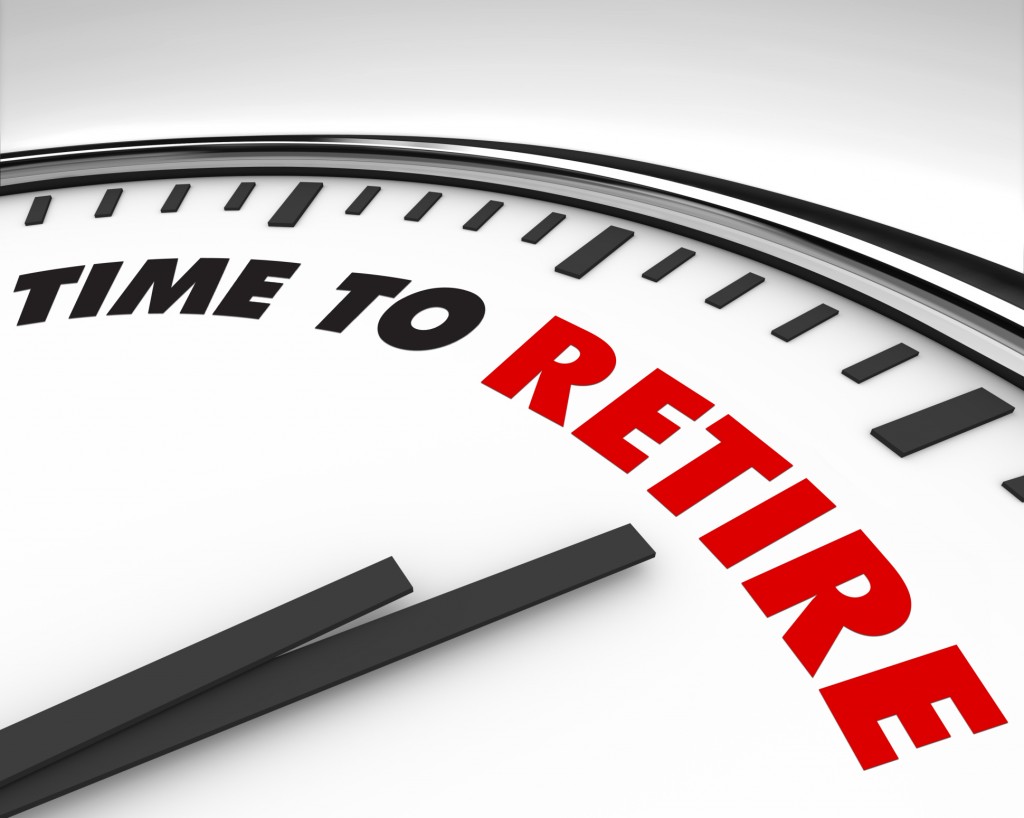Our children are not our retirement plans
By Randell Tiongson on July 17th, 2017

QUESTION: Hi Sir Randell! I’ve been reading a lot of personal finance articles about millennials. I read one that definitely hit home. It was one about the “sandwich generation” wherein Filipino adults feel sandwiched between their responsibilities to their parents and their responsibilities to their families (or the family they will have in the future). I don’t have any children yet, and I’m still single, but I’m scared and I already feel the pressure being sandwiched. My parents are the best, but unfortunately, not when it comes to money. I already give part of my income to them, and there are times I feel like they see me as their retirement plan. How can I talk to them and express my feelings that we need to do our own parts in setting ourselves up financially on our own? That I cannot fully depend on them and they cannot do the same to me? —Angel via Facebook Messenger
Hi Angel! This is definitely an interesting situation you are in, but a common one nonetheless. Compared to questions on investing and saving, I don’t get this type of question a lot. I’m sure, we see it happening around us always, and the phenomenon tends to be more obvious here in the Philippines where parents have the mind-set their children will take care of them come retirement.
This is a tricky topic to confront your parents with, but here are some steps you can use when the time finally comes that you need to approach them and talk to them:
Let them know their numbers.
If you’re contributing to household expenses, you know how much your parents spend on basic necessities monthly. You may have an idea how much their monthly expenses are.
With this, you can compute your parents’ retirement numbers. This is the amount they need to be able to retire comfortably. Crunching the numbers and showing the amount to your parents will make them realize you won’t be able to handle it on your own, not even when you and your siblings work together, because you have your own futures to prepare for.
Be transparent.
It may be that your parents also have no idea of the financial stress you’re going through contributing to their monthly budget, so it pays to be transparent. Let them know you’re having a difficult time covering even your needs.
If they’re aware of how you feel, they may ease the pressure on you and find ways to sustain themselves.
Do the saving for them.
However, if your parents are stubborn, and no amount of talking to them will make them understand, you can instead reduce your contributions and open an investment account for them. This may be especially effective if your parents do not know how to handle money properly.
When they reach retirement, they already have a retirement fund that you started years prior.
Be fully independent.
Last but not least, the only way for your parents to become truly independent from you is if you are not dependent on them. If you still live with them, then it’s just fair that you contribute to their monthly expenses, especially if your parents are still paying for the utilities.
If you don’t want to be treated as a retirement fund in the future, start by becoming fully independent from them. This could mean renting your own place and avoid asking for financial assistance unless it’s an emergency and is absolutely necessary. This way, your parents will understand they cannot depend on you (financially) because you’ve already stopped depending on them.
Money talk is always difficult, especially since this kind of talk is still taboo in Filipino culture. However, if you never initiate this type of conversation, you stand to risk your future.
When it comes to personal finance, it pays to start early. How will you start your own life if you have people who are still fully dependent on you?
By having the talk, you can make each other aware of your plans and align your next steps for the future.
Just a brotherly reminder: When discussing difficult issues with your parents, always do so with utmost love and respect. Remember, we are blessed when we honor our parents.
“Honor your father and your mother, that your days may be long in the land that the LORD your God is giving you.” Exodus 20:12, ESV
“…For children are not obligated to save up for their parents, but parents for their children.” 2 Corinthian 12:14, ESV
“A good man leaves an inheritance to his children’s children…” Proverbs 13:22, ESV
Best investments for retirement
By Randell Tiongson on November 3rd, 2016
Question: Hi Randell! Good morning! After browsing the net for Filipino personal finance tips, I learned about you. And after reading your articles, I’m very much driven to start investing. I’m already in my 30s and wishing I started earlier. But I can’t dwell on that anymore, so I’m ready to start now. As you keep saying, “the best time to invest was Tuesday, the next best time to invest is today.” With that, I know I should start investing, but where? With the multiple investments available, I don’t know where to start. It’d be great if you could help me on this. Thank you very much and God bless! —Carlo via Facebook

Answer: Hi Carlo! Thank you for messaging me. I’m sharing your query here in my column because I’m sure many Filipinos can relate to your situation. Many hold off saving for retirement because of the mentality that there are still many years left to save, but as you learned, the best time to invest was Tuesday, and the next best time is now. Don’t wait until you’re nearing retirement because investments are meant to be long-term. With that in mind, now we know that we should go for investment vehicles that are more for the long term. So what are these investments?
Property
Real estate is probably the favorite investment of Filipinos. While less than 1 percent of the Philippine population invests in stocks, bonds, and mutual funds, 7 in 10 Filipinos own their homes, according to the Bangko Sentral ng Pilipinas’ (BSP) 2012 Consumer Finance Survey.
Real estate is an advisable investment for retirement because the value of property appreciates through the years. Real estate property isn’t like a time deposit which gives you interest after a year (or less). You won’t make much by selling your property just after 6 or 12 months.
Stocks
Another investment vehicle is stock investing. Stocks are advisable for the long-term because they are risky. This means that the prices of stocks go up and down over a set time period, and you can lose money. One way to decrease your risk and avoid losses is to hold your stocks for the long-term, which makes stocks perfect for retirement. I recommend people to keep their stocks for a minimum of 10 years.
Seeing as you are in your 30s, you have about another 25 more years before you reach retirement age. That’s 20 years more than my suggested 10 years to spread your risk.
Pooled funds
I purposely put ‘pooled funds’ after ‘stocks’ because they are closely related. If you want to buy stocks of SM, Ayala, or Jollibee, you would have to buy them individually through a stock broker or your online trading platform. With pooled funds, be it a mutual fund or a UITF, you get a group of stocks in one basket or fund. The pooled fund can have SM, Ayala, and Jollibee stocks, depending which equities the fund manager buys. The fund manager does the investing for you.
He picks what stocks go into the pooled fund; all you have to do is make an investment deposit and keep track of your investments once or twice a year. It’s also important to know that there are different kinds of pooled funds, there are funds consisted entirely of stocks, others of bonds, while some funds offer a combination of different securities. For the purpose of retirement, and for Carlo who has about 25 years until retirement, a stock or equity-based pooled fund is best for a retirement which is still far away.
With three investments to choose from, you have a clearer idea of where to put your money for retirement. Now the only thing that’s left is to head to the bank (for UITF pooled funds) or a brokerage firm (for stocks and mutual funds) to fill out your application and open an investment account.
Variable Universal Life Insurance
A VUL is very similar to pooled funds but it has a life insurance component and therefore, there is cost of insurance imbedded in the policy. However, if you are in need of financial protection and also want to prepare for retirement at the same time, a VUL will come in handy.
With four investments to choose from, you have a clearer idea of where to put your money for retirement. Now the only thing that’s left is to head to the bank (for UITF pooled funds), a brokerage firm (for stocks) or a financial adviser (for mutual funds and VUL) to fill out your application and open an investment account.
Always remember that there is no such thing as a best investment. Remember to do your assignment well and do not forget to diversify and the key to a comfortable retirement is to start preparing early.
Read my books for practical finance and investments! Email [email protected] or visit National Bookstores to get my books!

What to do with your retirement fund
By Randell Tiongson on July 19th, 2016
Question: Where should my parents invest their retirement fund and savings?—James Magsumbol via Facebook

Answer: You and your parents are blessed to belong to the minority of Filipinos who have prepared for retirement. It is alarming to note that only a very small percentage of Filipinos prepare for retirement, so they end up being dependents of their children by the time they hit their golden years.
It is a good idea that you are asking about how to invest the retirement fund and savings of your parents. Many retirees make the mistake of not investing money during retirement for they fear they will lose their money or they just want to keep their cash.
While I agree that the bulk of retirement fund and savings should be liquid, part of the fund should be invested not for the sake of capital growth but as a means to preserve the purchasing power of your parents’ funds.
Inflation will not retire just because your parents did. Their retirement funds will still need to grow to catch up with inflation, which is why I recommended investing in some investments that can outperform inflation like bond funds or even balanced funds (mutual funds or UITFs).
Many retirees become short-term oriented when it comes to their money. But the fact is, they will probably live about 15 to 20 years more during retirement (longer hopefully). However, it is crucial to limit the allocation to maybe a maximum of 20 percent of their total money to the investments I mentioned as they are not guaranteed.
I would recommend that you sit down with your parents and take a look at their finances. Establish their monthly needs and go over their forecasted expenditures.
You may want to put as much as 12 to 24 months’ worth of expenses in cash or near cash instruments like savings accounts, time deposits or even money market funds. The rest of the funds can be allocated to other kinds of investments, but always be mindful of the investment risks involve.
After allocating for cash and near cash investments, you may want to consider some mutual funds or UITFs—a good ratio would be 70 percent on bond funds and 30 percent on balanced funds.
Bond funds are relatively safe and, while they are not guaranteed, they are the least volatile among the pooled investment funds. Since bond funds are relatively low-risk investments, don’t expect very good returns from them—they will perform better than inflation but not much better; 2 percent above inflation is a more realistic expectation of bond funds.
The remaining 30 percent can be placed in balanced funds, which are a combination of bonds and equities making them riskier than bond funds. However, the risk also means better returns, and you will need such growth to combat the diminishing impact of inflation to your parents’ retirement funds.
Since you did not specify the age of your parents, my recommendations are meant for retirees that are still not too senior. As your parents age, say 70 to 75, you may want to scale down their investments to lesser risk by removing the balanced funds, reducing the bond funds and greatly increasing their cash and near cash investments. As your parents hit 80 years old, you may want to keep all their funds in cash or near cash investments.
My recommendations are really just some benchmark figures as every situation is unique and people may have different objectives. Be prudent with your parents’ retirement fund. I hope this helps.





